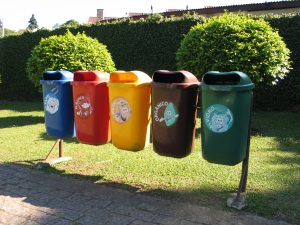In a bid to reduce youth unemployment, the government is calling on the youth to consider pursuing business ventures in Waste Management. Officials in the sector held an event detailing how the youth can benefit from this opportunity.
GCIS, in collaboration with the Department of Environment, Forestry and Fisheries hosted a masterclass on waste management as a business model for the youth.
The goal of the masterclass was to provide young people with knowledge on the waste sector’s economic, training, and funding opportunities. It also sought to inspire entrepreneurship to create sustainable eco-friendly jobs and boost the country’s economic growth.
The participants agreed that youth training and education in the waste sector and green economy is critical. The youth were also advised to work to create jobs rather than wait for the next employment opportunities.
While addressing the masterclass, Chief Director of Chemicals and Waste Policy, Thabo Magomola said the government sees the waste sector as a source of value recovery, beneficiation, job generation, and economic development.
Significant opportunity exists to maximise the recycling of chemicals and waste, and expand the value of the chemical and waste economy, while sustainably minimising the environmental and health impacts by reducing chemical waste, as early as possible in the value chain
Speeding up refuse recycling, waste-to-energy, and waste beneficiation, according to Magomola, will be critical to unlocking the waste sector’s potential economic benefits. Magomola further stated that this process has the potential to contribute towards the creation of 150 000 new jobs by 2024.
He admitted that job creation would be impossible without the involvement of the private sector, non-government actors, and other stakeholders.
The managing director of K1 Recycling, Tshepo Mazibuko also shared some insights on the importance of waste management and how to it into an income opportunity.
Mazibuko began working as a rubbish picker after failing to find a job for four years. He began by collecting recyclables from rubbish bins with a bag and trolley. He then discovered that he can turn it into a profitable business.
After registering my company in 2011, I wanted to get into the recycling space but realised that it required machines that were very expensive. That’s where the Department of Environment, Forestry and Fisheries came in with a grant of R5 million to assist me to buy machines and creating more jobs.
Through the department’s grant his company K1 Recycling could afford to buy processing machines from China. Since then, his company has been growing and prior to the Covid-19 pandemic, the company employed 21 permanent staff and had a total of 800 waste pickers.
Mazibuko urged young people to begin exploring the waste management sector and to start small in their own communities.
